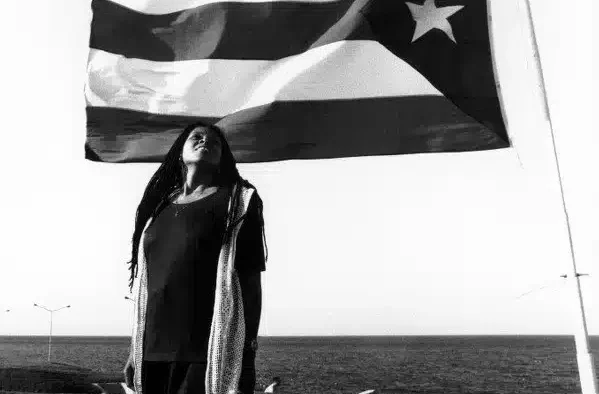“It is our duty to fight for our freedom.
It is our duty to win.
We must love each other and support each other.
We have nothing to lose but our chains.”
― Assata Shakur
The death of Assata Shakur in Havana recalls a generation of revolutionaries who refused to bow down before US imperialism. From the Panthers to Cuba, from prison chains to international solidarity, Assata lived and died a freedom fighter. Her voice, her book, and her struggle remain with us.
The news of the death of Assata Shakur in Havana recalls a time when popular resistance against racism in the United States could not be contained within the limits of respectability or reform. Shakur came of age in the era when the civil rights movement was forced to confront the violence of the US state, giving rise to the Black Panther Party and later the Black Liberation Army (BLA). In those organisations, she carried forward the principle that oppressed people had the right to defend themselves.
Her life became inseparable from the history of US repression. In the 1970s she was relentlessly pursued, arrested, and tried in case after case—most collapsing under the weight of fabricated charges and lack of evidence. In 1973, Shakur was gravely wounded and captured on the New Jersey Turnpike after a confrontation that left a state trooper dead. Forensic evidence showed she had been shot while her hands were raised, yet she was convicted in 1977 and sentenced to life in prison. This was not justice—it was the working of COINTELPRO, the FBI’s war on Black revolutionaries.
Two years later, comrades liberated her from prison. By 1984 she had been granted political asylum in Cuba, where she lived until her death. There, she remained an unbroken revolutionary, supported by the Cuban people and the internationalist solidarity she had always embraced.
Shakur’s autobiography, Assata (1987), remains one of the most important political testaments of that generation. It is both a deeply personal story and a sharp political education. She recounts her childhood in the segregated South and later in New York, the warmth and resilience of Black community life alongside the daily humiliations of racism. She describes her political awakening—how she moved from the civil rights struggle into revolutionary politics, drawn to the Panthers’ insistence on dignity, self-defence, and socialism. She is unsparing in her account of state repression: prison chains, solitary confinement, humiliation, and the endless legal persecution designed to break her.
But the book is not simply a memoir of pain. It is also a manifesto for liberation. Shakur emphasised that politics must never be driven by emotion alone but by careful, scientific study of society and the enemy we face. She wrote of how the system tries to isolate revolutionaries, to cut them off from the people, and how the only answer is organisation: disciplined, collective struggle that can transform individual resistance into a force capable of confronting imperialism. She insisted on the central role of women in struggle, and on the principle that the oppressed could never win freedom by appealing to the conscience of their oppressors. As she put it: ‘Nobody in the world, nobody in history, has ever gotten their freedom by appealing to the moral sense of the people who oppress them.’
For many young people discovering her words today, Shakur is not a relic but a guide. She belongs to a generation that bore the full weight of the US state’s war on Black liberation—and yet she never surrendered. From exile, she defended Cuba against imperialism, spoke out for political prisoners, and inspired movements for prison abolition and anti-racist resistance across the globe. In 1996 she spoke to our comrades, telling them of the comradeship and solidarity she had found in Cuba and how this had deepened her understanding of the revolutionary process: ‘It would be pure fantasy to think that all the ills, such as racism, classism or sexism, could be dealt with in 30 years. But what is realistic is that it is much easier and much more possible to struggle against those ills in a country which is dedicated to social justice and to eliminating injustice.’
The US state branded her a ‘terrorist’, placing a $2 million bounty on her head. But to the oppressed, she will always be remembered as a freedom fighter. Her life tells the truth about the lengths to which imperialism will go to crush resistance, and the even greater lengths to which revolutionaries must go to keep that resistance alive.
Assata Shakur lived and died in exile, but she was never defeated. She broke through the isolation imposed on her by the state, insisting that freedom could only be built in common, through organisation and struggle. And we should all be thankful that the Cuban Revolution never betrayed her—standing by her when others might have faltered, proving once again the meaning of solidarity in practice.
Fight Racism! Fight Imperialism! salutes Assata Shakur. Her struggle lives on. Assata Shakur, presente.
Paul Mallon




